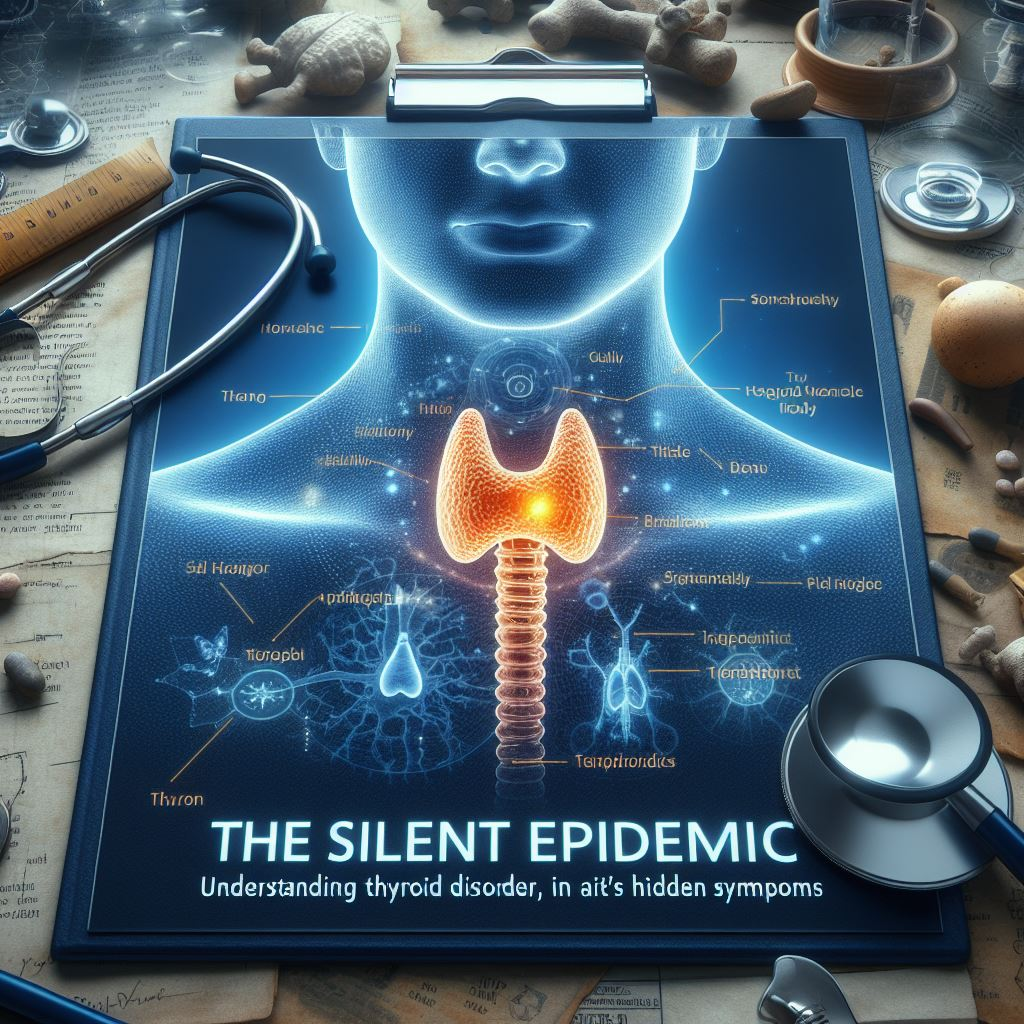On this page you’ll find
- Overview
- Types of Thyroid Disorder
- Causes & Symptoms
- Dietary Approaches
Overview
Thyroid disorder affect millions of people worldwide, but many are unaware of its hidden symptoms. In India too, there is a significant burden of thyroid disease. According to a projection from various studies on thyroid diseases, it has been estimated that about 42 million people in India suffer from thyroid diseases. This is why thyroid disorders are often referred to as the “silent epidemic”.
The thyroid, a butterfly shaped gland that lies over the windpipe (trachea) and just below larynx, produce triiodothyronine (T3) and thyroxin (T4) hormones that influence almost every function of the body. These hormones regulates metabolism, physical and mental development, nerve and muscle function and circulation. Thyroid hormones also affects the action of other hormones for example, they intensify the action of insulin and body’s response to the adrenal hormones that are instrumental in reacting to stress.
Unlike other hormones producing glands, the thyroid need specific nutrient iodine to produce its hormones. Both too much and too little iodine can cause thyroid to malfunction. Goiter, an overgrown thyroid that is marked by a swelling in the lower neck, usually signals a thyroid disorder. Although they affect both sexes, thyroid disorders tend to occur more frequently in women.
HYPOTHYROIDISM
An underactive thyroid or hypothyroidism, slow down metabolism, causing weight gain and lethargy. Early symptoms are easily overlooked: progressive fatigue, sleepiness and muscle weakness. People with hypothyroidism often complain of memory and concentration problems. They develop dry skin and thinning hair. Nail grow slowly and become brittle. Because metabolism slow down, weight gain is common, even though the person may be eating less than normal. Women often develop menstrual irregularities; constipation is another common problem. Hypothyroidism is frequently caused by chronic inflammation due to an autoimmune disorder. Treatment usually requires lifelong hormones replacements with thyroxine pills.
HYPERTHYROIDISM
People with overactive thyroids tend to be nervous. Their metabolism speeds up, and they experience unusual hunger, weight loss, muscle weakness and rapid heartbeat, among other symptoms. Treatment is aimed at the cause and involves reducing hormone production either by giving radioactive iodine or antithyroid drugs or by surgery to remove all or part of thyroid.
CAUSES
The usual causes of thyroid problems are an infection, autoimmune disorder, hormonal imbalance, tumor, exposure to high level of ionizing radiation or hereditary problems.
SYMPTOMS
One of the most commonly overlooked symptoms of thyroid disorders is hair loss. Hair loss can occur in both hypothyroidism and hyperthyroidism, and it can be one of the earliest signs of a thyroid disorder. Other hidden symptoms of thyroid disorders include changes in menstrual cycles, difficulty concentrating and dry skin.
Thyroid disorders can also affect mental health, with depression and anxiety being commonly reported in those with hypothyroidism. The relationship between the thyroid gland and mental health is complex and not yet fully understood. Still, it is believed that the hormones produced by the thyroid gland play a role in regulating mood and emotional well-being. It increase the risk of other health problems, such as high cholesterol, heart disease, and osteoporosis. This is why it is crucial to get a proper diagnosis and treatment for a thyroid disorder.
DIETARY APPROACHES
The Recommended Dietary Allowance (RDA) for iodine is 150 mcg per day for adolescents and adults. Even people on low salt diets get plenty of iodine from seafood, green leafy vegetables and dairy products. Certain vegetables, mainly cabbage, broccoli and other cruciferous vegetables, contains substance know as goitrogens, which block the effects of thyroid hormones and may lead to goiter. Cooking these foods inactivates the goitrogens.
If you are having thyroid disorder, use small amounts of iodized salt and eat plenty of seafood, dairy products, spinach and other vegetables for iodine. People with hypothyroidism may need a higher intake of beta carotene to meet vitamin A needs.
If you suspect that you have a thyroid disorder, it is essential to talk to your healthcare provider. They can order blood tests to check your thyroid hormone levels and determine if you have a thyroid disorder. Treatment for thyroid disorders typically involves medication to regulate hormone levels, and in some cases, surgery may be necessary.
Conclusion
Thyroid disorders are a silent epidemic, with many people experiencing symptoms that are often overlooked or unrecognized. If you are experiencing any of the symptoms mentioned above or suspect that you have a thyroid disorder, it is crucial to talk to your healthcare provider and get a proper diagnosis and treatment. With proper management, people with thyroid disorders can lead healthy and fulfilling lives.


